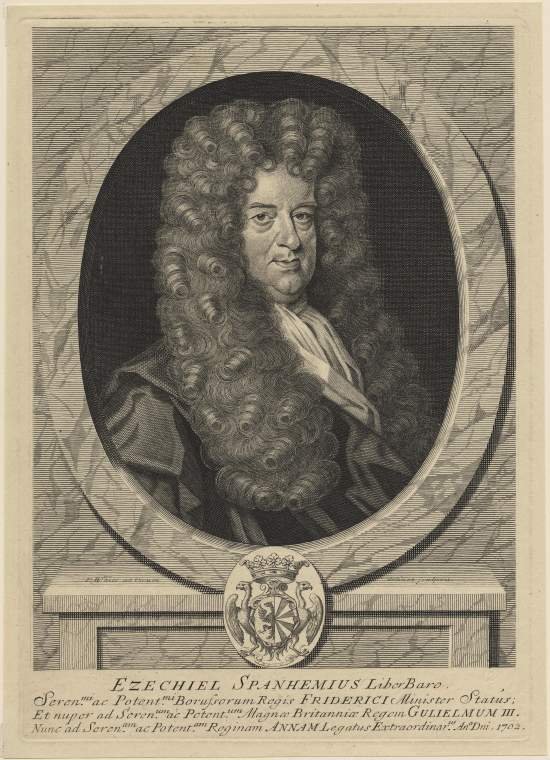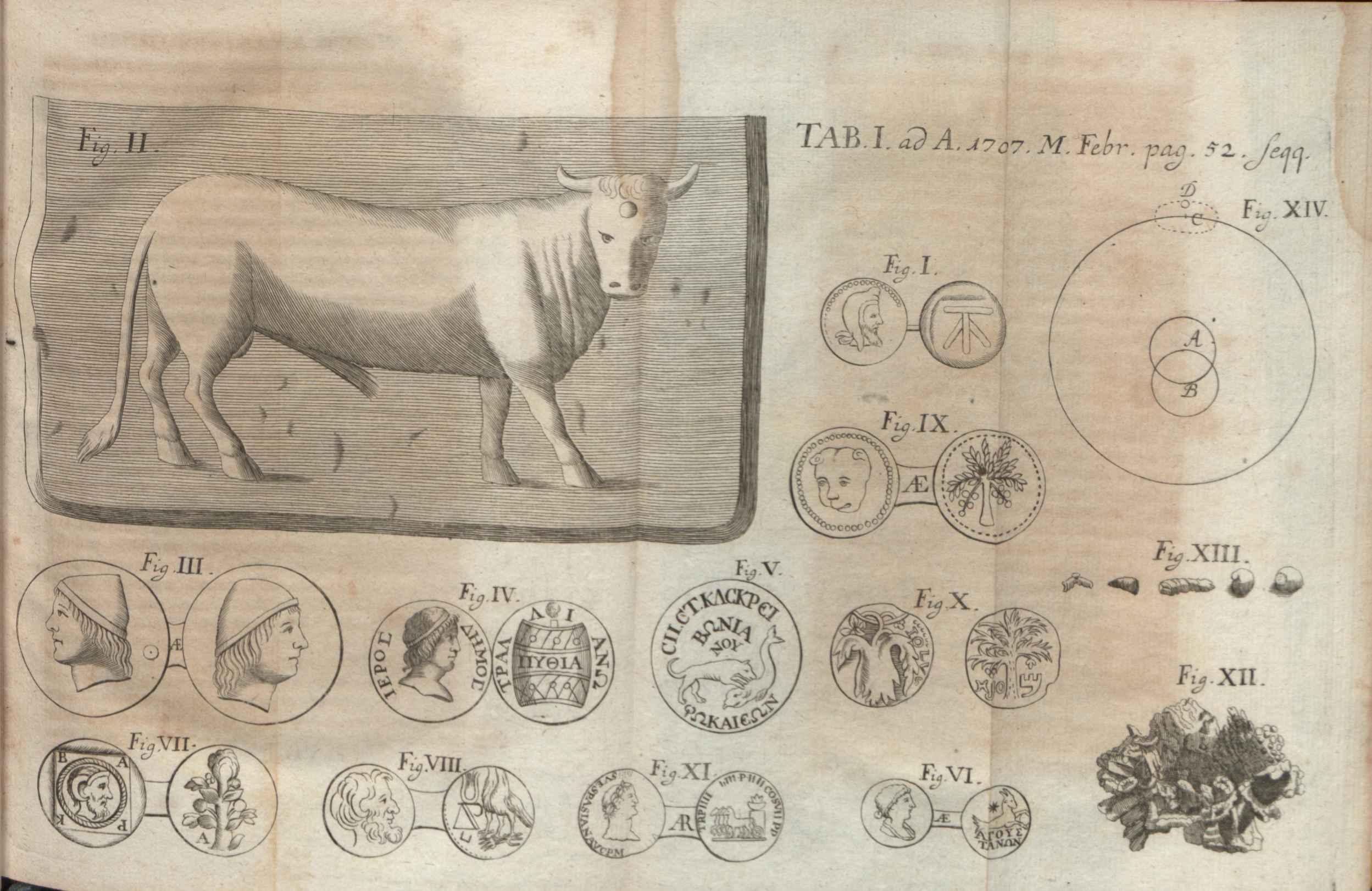Ezekiel Spanheim on:
[Wikipedia]
[Google]
[Amazon]
Ezekiel, Freiherr von Spanheim (also Ézéchiel, and known as Baron Spanheim) (7/18 December 1629 – 14/25 November 1710) was a 
 His major works are ''Disputationes de usu et præstantia numismatum antiquorum'' (Rome, 1664; in 2 vols., London and Amsterdam, 1706–17) and ''Orbis Romanus'' (London, 1704; Halle, 1738), which
His major works are ''Disputationes de usu et præstantia numismatum antiquorum'' (Rome, 1664; in 2 vols., London and Amsterdam, 1706–17) and ''Orbis Romanus'' (London, 1704; Halle, 1738), which
Genevan
Geneva ( ; french: Genève ) frp, Genèva ; german: link=no, Genf ; it, Ginevra ; rm, Genevra is the List of cities in Switzerland, second-most populous city in Switzerland (after Zürich) and the most populous city of Romandy, the French-speaki ...
diplomat and scholar.

Life
He was born atGeneva
Geneva ( ; french: Genève ) frp, Genèva ; german: link=no, Genf ; it, Ginevra ; rm, Genevra is the List of cities in Switzerland, second-most populous city in Switzerland (after Zürich) and the most populous city of Romandy, the French-speaki ...
, the eldest son of Friedrich Spanheim the Elder. After 1642 he studied philology and theology at the University of Leyden
Leiden University (abbreviated as ''LEI''; nl, Universiteit Leiden) is a public research university in Leiden, Netherlands. The university was founded as a Protestant university in 1575 by William, Prince of Orange, as a reward to the city of Le ...
, and in 1650 returned to Geneva to be Professor of Rhetoric at Geneva.
In 1656 Spanheim became tutor to the son of Charles I Louis, Elector Palatine
Charles Louis, Elector Palatine (german: Karl I. Ludwig; 22 December 1617 – 28 August 1680), was the second son of Frederick V of the Palatinate, the "Winter King" of Bohemia, and of Elizabeth Stuart, Queen of Bohemia and sister of Charl ...
. Political theory led him into a diplomatic career. The Elector sent him in 1661 to Rome to investigate intrigues of the Roman Catholic Electors. After his return in 1665 the Elector employed him as ambassador at various courts, finally in England where after 1679 he was charged also with the affairs of the Elector of Brandenburg
This article lists the Margraves and Electors of Brandenburg during the period of time that Brandenburg was a constituent state of the Holy Roman Empire.
The Mark, or ''March'', of Brandenburg was one of the primary constituent states of the Hol ...
. He was elected a Fellow of the Royal Society
Fellowship of the Royal Society (FRS, ForMemRS and HonFRS) is an award granted by the judges of the Royal Society of London to individuals who have made a "substantial contribution to the improvement of natural science, natural knowledge, incl ...
in 1679.
In 1680 he entered the service of electoral Brandenburg as minister of state. As ambassador of the Great Elector
Frederick William (german: Friedrich Wilhelm; 16 February 1620 – 29 April 1688) was Prince-elector, Elector of Margraviate of Brandenburg, Brandenburg and Duke of Duchy of Prussia, Prussia, thus ruler of Brandenburg-Prussia, from 1640 until hi ...
he spent nine years at the court of Paris, and subsequently devoted some years to studies in Berlin
Berlin ( , ) is the capital and largest city of Germany by both area and population. Its 3.7 million inhabitants make it the European Union's most populous city, according to population within city limits. One of Germany's sixteen constitue ...
; but after the Peace of Ryswick
The Peace of Ryswick, or Rijswijk, was a series of treaties signed in the Dutch city of Rijswijk between 20 September and 30 October 1697. They ended the 1688 to 1697 Nine Years' War between France and the Grand Alliance (League of Augsburg), Gran ...
in 1697 he returned as ambassador to France where he remained until 1702.
In 1702, he went on his final diplomatic mission, as the first Prussia
Prussia, , Old Prussian: ''Prūsa'' or ''Prūsija'' was a German state on the southeast coast of the Baltic Sea. It formed the German Empire under Prussian rule when it united the German states in 1871. It was ''de facto'' dissolved by an em ...
n ambassador to England. He died in London in 1710 and was buried in Westminster Abbey
Westminster Abbey, formally titled the Collegiate Church of Saint Peter at Westminster, is an historic, mainly Gothic church in the City of Westminster, London, England, just to the west of the Palace of Westminster. It is one of the United ...
.
Works
 His major works are ''Disputationes de usu et præstantia numismatum antiquorum'' (Rome, 1664; in 2 vols., London and Amsterdam, 1706–17) and ''Orbis Romanus'' (London, 1704; Halle, 1738), which
His major works are ''Disputationes de usu et præstantia numismatum antiquorum'' (Rome, 1664; in 2 vols., London and Amsterdam, 1706–17) and ''Orbis Romanus'' (London, 1704; Halle, 1738), which Edward Gibbon
Edward Gibbon (; 8 May 173716 January 1794) was an English historian, writer, and member of parliament. His most important work, ''The History of the Decline and Fall of the Roman Empire'', published in six volumes between 1776 and 1788, is k ...
used as a source for his monumental The Decline and Fall of the Roman Empire
''The History of the Decline and Fall of the Roman Empire'' is a six-volume work by the English historian Edward Gibbon. It traces Western civilization (as well as the Islamic and Mongolian conquests) from the height of the Roman Empire to the ...
. He also edited with Petavius the ''Opera'' of Cyril of Alexandria
Cyril of Alexandria ( grc, Κύριλλος Ἀλεξανδρείας; cop, Ⲡⲁⲡⲁ Ⲕⲩⲣⲓⲗⲗⲟⲩ ⲁ̅ also ⲡⲓ̀ⲁⲅⲓⲟⲥ Ⲕⲓⲣⲓⲗⲗⲟⲥ; 376 – 444) was the Patriarch of Alexandria from 412 to 444 ...
and of the Emperor Julian
Julian ( la, Flavius Claudius Julianus; grc-gre, Ἰουλιανός ; 331 – 26 June 363) was Roman emperor from 361 to 363, as well as a notable philosopher and author in Greek. His rejection of Christianity, and his promotion of Neoplaton ...
(Leipzig, 1696).
References
*http://www.ccel.org/ccel/schaff/encyc11/Page_35.htmlNotes
;AttributionExternal links
* http://www.bautz.de/bbkl//s/spanheim_e.shtml.shtml {{DEFAULTSORT:Spanheim, Ezekiel 1629 births 1710 deaths Writers from the Republic of Geneva Diplomats from the Republic of Geneva Fellows of the Royal Society Numismatists